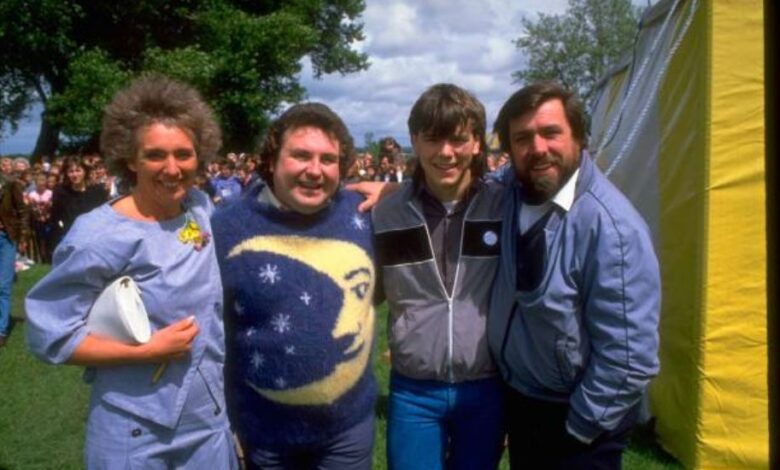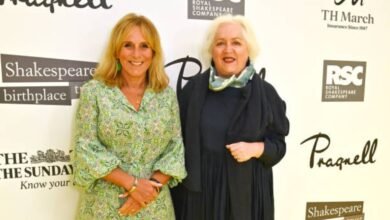David Pammenter: Educator, Theatre Pioneer, and Sue Johnston’s Forgotten Partner

Who is David Pammenter?
David Pammenter is a distinguished British theatre director, educator, and advocate for participatory theatre, who has made notable contributions to the cultural and educational landscape in the UK. Though not a household name like his former spouse, actress Sue Johnston, Pammenter’s work in Theatre-in-Education (TIE), academic circles, and multimedia has had a profound impact on shaping socially responsible and interactive storytelling in the performing arts.
With a career that spans decades, David Pammenter has dedicated his professional life to empowering audiences—particularly young people—through drama and dialogue. His approach intertwines performance and pedagogy, creating experiences that go beyond entertainment to challenge societal norms, explore pressing issues, and inspire critical thinking.
Early Career and Professional Impact
David Pammenter first rose to recognition in the 1970s and 1980s as a practitioner within the Theatre-in-Education movement, a form of theatre aimed at supporting learning through dramatized storytelling. This movement emerged in post-war Britain as a socially conscious response to the educational system, and Pammenter quickly became one of its most innovative voices.
Working with various theatre companies and youth programs, Pammenter developed interactive performances that addressed complex topics such as poverty, social justice, identity, and political engagement. He wasn’t merely telling stories—he was inviting the audience to become part of them, to question, debate, and understand. These were not passive experiences; they were carefully curated acts of engagement.
His advocacy for participatory theatre reflected a deeper belief in the power of the arts to transform society. In Pammenter’s philosophy, education through drama should be dialogic—it should promote the exchange of perspectives, values, and lived experiences.
The Educator’s Journey: Academia and Multimedia
David Pammenter’s career eventually led him into academia and multimedia. He is currently known to serve as the Audio Visual and Multimedia Officer at the University of Edinburgh Business School. In this capacity, he oversees the institution’s multimedia infrastructure, providing support for lecture capture, digital resources, and interactive learning tools.
Although this role appears more technical, it aligns with Pammenter’s long-standing commitment to combining education and media. His work here reflects a quiet continuation of his belief that technology and storytelling can merge to create impactful learning environments.
In addition to hands-on media support, Pammenter has contributed writings and reflections to academic discourse. His essays often explore themes like the “theatre of hope,” suggesting that even in times of despair or division, theatre can act as a beacon—an imaginative space where people confront the world as it is, while imagining how it could be.
Marriage to Sue Johnston: A Partnership in Theatre and Life
One of the most widely recognized aspects of David Pammenter’s personal life is his former marriage to actress Sue Johnston, famed for her roles in Brookside, The Royle Family, and Waking the Dead. The couple met in Coventry in the 1970s while working with a politically charged left-wing theatre and education group. Their relationship blossomed amid shared values of social justice and creativity.
They married in 1976, and for a time, they were not only partners in life but also collaborators in the world of socially engaged theatre. However, like many creative unions, theirs faced immense pressure—both personal and professional. The couple divorced in 1980, only four years after tying the knot.
Despite the brevity of their marriage, Sue Johnston has frequently referred to Pammenter in interviews. She speaks of their time together with a mixture of warmth and regret. Their shared values were deep-rooted, but lifestyle clashes and the burden of early parenting ultimately drove a wedge between them.
Children and Legacy: Joel and Rory Pammenter
David and Sue’s marriage produced one son—Joel Pammenter, born in June 1979. As with many children of parents in the arts, Joel grew up in an environment rich with expression, performance, and complexity. Today, Joel Pammenter has made a name for himself in the field of fashion photography, working with notable brands and publications.
Joel’s artistic pursuits reflect the creativity that flows through both sides of his family—his father’s theatrical and educational instincts, and his mother’s screen presence and storytelling finesse. While he remains largely private about his family life, it is clear that he carries on the creative torch, albeit in a different medium.
The family legacy has now extended to a third generation with the birth of Rory Pammenter, David’s grandson, in June 2012. Not much is publicly known about Rory, which is perhaps a conscious decision by the family to maintain his privacy. Nonetheless, the Pammenter family tree is rich with stories—of artistry, activism, reinvention, and reconciliation.
A Life of Reflection and Quiet Influence
David Pammenter may not seek the limelight, but his influence has resonated across various spheres. From classrooms to community theatres, from multimedia lecture halls to public discourse, he has spent his life using communication as a tool for change.
His trajectory stands in contrast to more conventional success stories. Instead of awards and headlines, Pammenter’s legacy is more grassroots—measured by the number of young minds ignited, the discussions his work has provoked, and the educational frameworks he helped shape.
While he doesn’t maintain a strong public or social media presence, references to his work and philosophy can be found scattered across academic journals, blogs, and theatre retrospectives. His story serves as a reminder that not all impactful lives unfold in the spotlight—some thrive in the margins, precisely where they are needed most.
David Pammenter and the Power of Participatory Theatre
Participatory theatre, as championed by Pammenter, is more than a method—it’s a mindset. It assumes that all participants, regardless of age or background, have valuable insights to offer. In this context, the audience becomes a co-creator, challenging the traditional hierarchies between performer and observer.
This approach is deeply democratic and aligns with the political ideals that shaped Pammenter’s early career. It also underscores his belief that theatre should not just reflect society, but question it—and offer alternatives.
In a world increasingly dominated by passive consumption and algorithm-driven media, Pammenter’s commitment to active engagement feels both timely and radical. His insistence on hope as a central theme in storytelling reminds us that change begins with imagination.
Legacy Beyond Fame
Despite being most commonly associated with his ex-wife Sue Johnston, David Pammenter deserves recognition in his own right—as a pioneer of educational theatre, a thoughtful academic, and a father and grandfather whose influence stretches across generations.
Where Johnston captured hearts on screen, Pammenter moved minds in more intimate settings—classrooms, rehearsal spaces, and community halls. Their paths diverged, but both contributed uniquely to British culture.
As he continues his work—now more quietly behind the scenes—Pammenter remains a testament to the enduring power of creative, purposeful living.
In Conclusion
David Pammenter’s life reminds us that significance does not always come with celebrity. Sometimes, it is the quiet teacher, the thoughtful director, or the innovative technologist who leaves the most lasting impression. His contributions to participatory theatre and education have empowered countless individuals to question, explore, and engage.
Whether through his professional work or his personal legacy as a father and grandfather, David Pammenter’s story is one of impact without fanfare, dedication without demand for attention.
This article is published by New Leaf By Altintis, a space committed to telling powerful stories that deserve to be heard.



